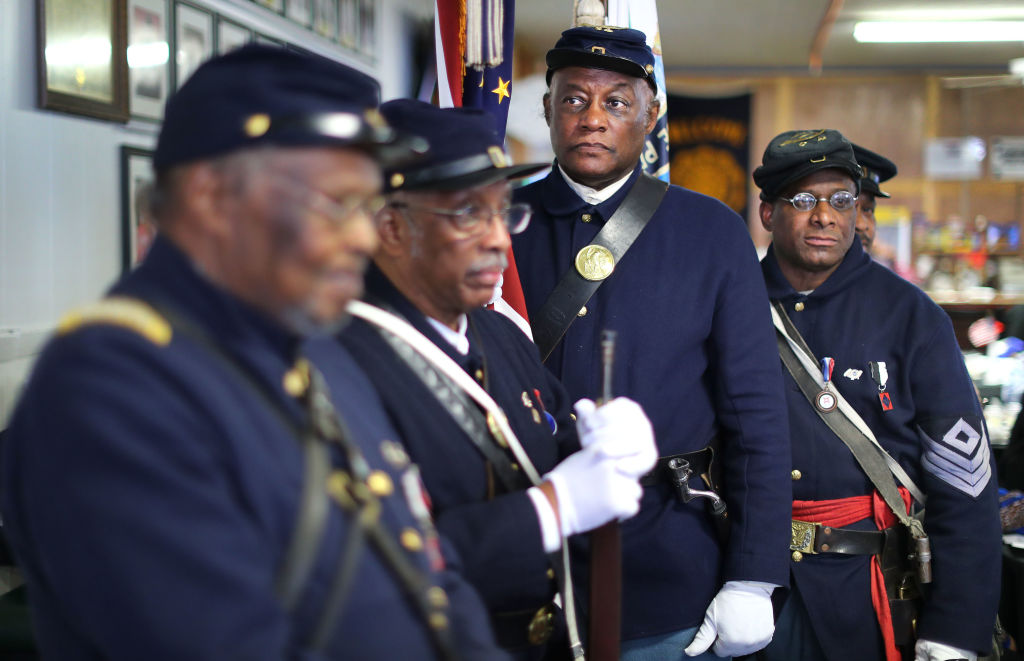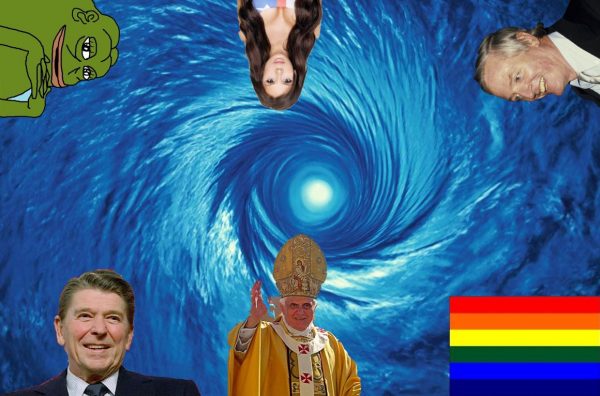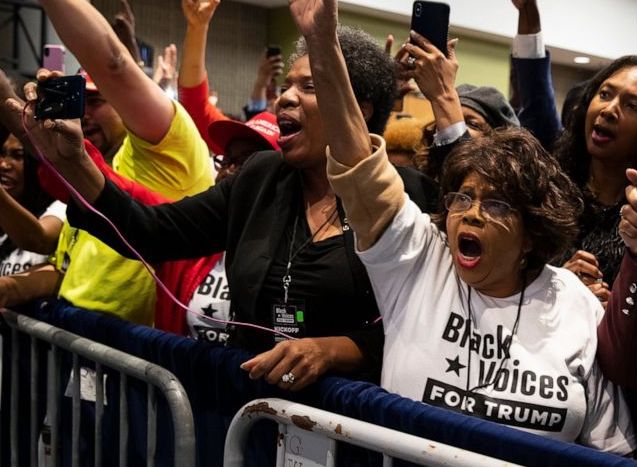Yes, “Parties of No” can win.
American, Black, and Proud

African Americans are under no obligation to renounce their black identity.
The following essay is a direct response to Jason D. Hill’s “Freedom from ‘Blackness,'” and thus initiates a conversation in these pages among independent black thinkers on the question of African American identity. More items are forthcoming.
I reject the terms of surrender offered by Jason D. Hill in his essay “Freedom From ‘Blackness,’” recently published in The American Mind, in which he demands that blacks renounce their racial identity and “become a psychologically raceless people and open ourselves to the luminous potential of man and a new birth to the black individual as an individual.”
I’m not renouncing a damned thing about my life and heritage in the United States. Professor Hill calls on black Americans to empty themselves of any human identification. He supposes this will make us pioneers of a new “planetary ethic.” This proposal is religious in nature. He wants blacks to be the new man of the new creation promised in the Christian Bible, but he wants to arrive at that glorified humanity without the Second Coming of Christ. Hill sounds like Saint Paul: “There is neither Jew nor Greek, there is neither slave nor free, there is no male and female, for you are all one in Christ Jesus.” Or, to look at it from another perspective, he wants to remake blacks in the image of Homo Sovieticus, starting over at Year One.
Hill presents a warped view of black history and then can’t imagine why blacks embrace it. He pretends the only reason blacks coalesce around a “self hating form of identification” is a “fetishized history.” But if Professor Hill weren’t in such a rush to bring about the new Eden he might have examined the motivations of the actual black leaders who were trying to save a people from an overwhelming flood of hatred. Richard Allen, for instance—a prominent black leader in the late-eighteenth century and founder of the African Methodist Episcopal church—said what knits the cause of blacks, from the prosperous and educated to the poor and discarded, is the “bond of suffering and wrong.”
Hill’s polemic is also flawed for what it omits. Black Americans have no tribal affiliation. We’re not Masai, Yoruba, or Zulu. We assume whatever political moniker is affixed to us—from Colored to Negro to African American—but we are Americans foremost. Certainly the rest of the world sees us as Americans. The black soldiers I know who served multiple tours in Iraq and Afghanistan can reliably report that when the bullets were flying on the battlefield the jihadis aiming the AK-47s their way certainly thought of them as American. Even wrongheaded and easily manipulated black athletes, from John Carlos and Tommie Smith to Colin Kaepernick, who took a stand against the flag did so because they wanted more of what they conceive to be America—not more of what they conceive of as being black.
American citizenship is our birthright. It rightly offends us when we think it is being denied. Throw away our particular American blackness and you throw away what makes us exceptional. It is odd that Professor Hill made no mention of the very real amor patria black Americans possess. Why not? Has he internalized the racist belief that blacks can never be fully American? Is he projecting his own black self-hatred onto the distant, dumb blacks he psychoanalyzes in his piece? That’s an uncharitable reading, but one worth considering because Hill wouldn’t be the first black in an elite position to look out in despair at the condition of his people and consider them too hopeless to continue as constituted and too embarrassing to be counted as the civil equals of white Americans.
“Freedom From ‘Blackness’” echoes the “Talented Tenth” scheme propounded by W.E.B. Du Bois, and embraced by elite black academics, which presumes blacks will forever be burdened by an Incapable Ninetieth. Much mischief—including support for eugenics—has issued from that idea. Hill’s plea for blacks to resign from the human race reads a lot like a tirade from someone who has had it up to here with a chronically failing relative. “Just kill yourself already and get it over with!” Far from renouncing my parents, grandparents, and great-grandparents, I will continue to celebrate the rise of my line from slavery and sharecropping and stunted Jim Crow livelihoods to affluence and influence. I don’t see any virtue in disowning blackness in the nation that made such an improbable trajectory possible. Hill doesn’t understand that renouncing our blackness is also to renounce the country that made us.
And renouncing our blackness would also damage America. Black leaders, peers of Richard Allen, rejected the idea that repatriating blacks to Africa was the solution to the problem of blackness. “Whereas our ancestors (not of choice) were the first successful cultivators of the wilds of America,” they wrote, “we their descendants feel ourselves entitled to participate in the blessings of her luxuriant soil… and that any measure or system of measures, having a tendency to banish us from her bosom, would not only be cruel, but in direct violation of those principles, which have been the boast of the republic.” Black Americans have been part of the nation’s history from the outset. Racists of any color who try to disentangle black from white in our shared legacy are historical revisionists of the most tendentious variety.
I certainly acknowledge Hill’s claim that black identity was fabricated from hostility for African slaves. But I prefer to see that calamity through a different lens of the scriptures—the story where Joseph confronted his brothers who had left him for dead by saying, “As for you, you meant evil against me, but God meant it for good.” Living and dying in America as Americans affirming our allegiance to a place that has not always been hospitable to us is the essence of the “radical forgiveness” Hill wants blacks to demonstrate. The opposite of being a racist isn’t to become a deracinated zombie lurching about in the world with no memory. It is not a sin to identify with a people. In America, blacks enjoy the privilege, along with everybody else, of identifying both with a particular group and with all of the people represented by the Red, White, and Blue.
This is our land. These are our people, for better or worse. Apple pie. Baseball. Hot dogs. You’ll have to pry those from my cold, dead hands, and not a moment before.
The American Mind presents a range of perspectives. Views are writers’ own and do not necessarily represent those of The Claremont Institute.
The American Mind is a publication of the Claremont Institute, a non-profit 501(c)(3) organization, dedicated to restoring the principles of the American Founding to their rightful, preeminent authority in our national life. Interested in supporting our work? Gifts to the Claremont Institute are tax-deductible.
Why African Americans should be very, very mad at the Democratic Party
America’s rising ethnic groups won’t settle for woke religion.



